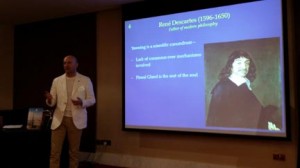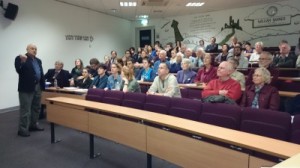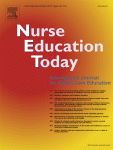Bournemouth University Computer Human Interaction (BUCHI) initiative received funding from the Fusion Investment Fund (Staff Mobility and Networking) to host two prestigious researchers who will deliver a talk on Tuesday, 17th March, 1pm. These two talks will take place in the Executive Business Centre (EB708) and will be free and open to all.
Our first speaker will be Jürgen Ziegler who is a full professor in the Department of Computer Science and Applied Cognitive Science at the University of Duisburg-Essen, Germany. Jürgen directs the Interactive Systems Research Group and will talk about “interactive recommending” i.e. increasing user control and transparency in recommender systems.
Our second speaker will be Stephen Giff who is the Head of User Experience (UX) Research and Design at Microsoft Advertising, Seattle, USA. Stephen will talk about “trust as a design problem”.
You can read the abstracts below for more details:
Interactive Recommending (Prof Jürgen Ziegler, University of Duisburg-Essen), 13.00-14.00
Recommender systems have come to play an important role in helping users search for information items or products of interest in very large information spaces. While algorithmic recommender techniques have reached a high level of maturity in recent years, they often fail to the support the situational needs of the user and typically lack user control and transparency, resulting in reduced effectiveness and trustworthiness. Interactive approaches to recommending aim at overcoming some of these issues, allowing users to express their preferences in a more flexible fashion and to control how recommendations are generated. In this talk, I will discuss the concept of interactive recommending and present some recent developments in our group that combine interactive filtering techniques with recommender algorithms.
Trust as a Design Problem (Stephen Giff, Microsoft), 14.00-15.00
To ensure anything more than superficial engagement with customers, an organization needs to establish and maintain trust. But trust is complex – it’s hard to build, and extremely easy to lose. In terms of trust in a software or online setting, there are three key factors that contribute to a decision to trust an organization, and decide to share data with them: (1) Role of Individual; (2) Role of Context; and Role of Experience. Designing for trust is a fairly straightforward problem if considered from an engineering and legal perspective – we need to protect user data, and notify what data is being gathered, and how it will be used. However, it is much more complex if considered from a human perspective – what data are users comfortable sharing, and in what context? When is the right moment to ask for data? What is the appropriate value exchange? How can we design experiences that are trustworthy? This talk will provide an overview of online trust factors as they relate to opt-in, and will recommend that instead of focusing on technological and legal aspects of trust, the industry needs to pivot to focus on the user – ultimately viewing trust as a design problem to be addressed by a rigorous design process.
You can contact Dr Huseyin Dogan (hdogan@bournemouth.ac.uk) for more information about these two talks.
























 Dr. Ashraf cited on ‘Modest Fashion’ in The Guardian
Dr. Ashraf cited on ‘Modest Fashion’ in The Guardian NIHR-funded research launches website
NIHR-funded research launches website Academics write for newspaper in Nepal
Academics write for newspaper in Nepal New paper published on disability in women & girls
New paper published on disability in women & girls Global Consortium for Public Health Research 2025
Global Consortium for Public Health Research 2025 MSCA Postdoctoral Fellowships 2025 Call
MSCA Postdoctoral Fellowships 2025 Call ERC Advanced Grant 2025 Webinar
ERC Advanced Grant 2025 Webinar Horizon Europe Work Programme 2025 Published
Horizon Europe Work Programme 2025 Published Horizon Europe 2025 Work Programme pre-Published
Horizon Europe 2025 Work Programme pre-Published Update on UKRO services
Update on UKRO services European research project exploring use of ‘virtual twins’ to better manage metabolic associated fatty liver disease
European research project exploring use of ‘virtual twins’ to better manage metabolic associated fatty liver disease